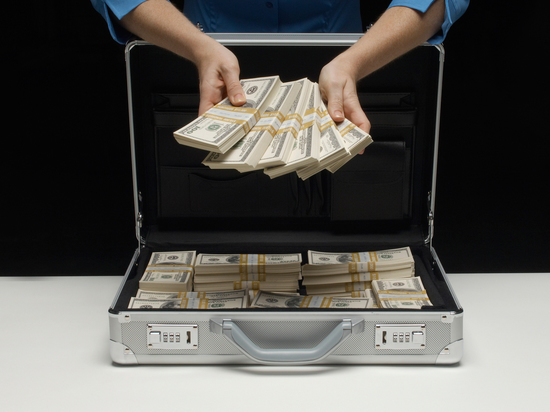Economist Maslennikov spoke about the fate of Russian reserves frozen by the West
The reserves accumulated by Russia in foreign accounts haunt the Western opponents of our country. Washington continues to discuss the possibility of using these funds to help Kiev, however, according to the German newspaper Die Welt, the EU's intention to finance the recovery of the Ukrainian economy at the expense of Russia's frozen assets is very difficult and most likely doomed to failure. These assets are distributed over a large number of accounts, the connection of which with the Kremlin, according to German analysts, is difficult to establish: «Nabiullina's treasure hunt will turn out to be more difficult than originally thought,» the Western European publication states.

The collective West has repeatedly announced that frozen Russian funds should be invested in the Ukrainian economy. The amount has long been calculated — it is € 300 billion, which make up the lion's share of the frozen international reserves of the Bank of Russia.
However, the elbow is close, but you won’t bite. According to Die Welt, it is currently unknown where exactly the reserves of the Central Bank of the Russian Federation are located. “Even if Brussels finds this money, the EU is still unlikely to be able to use it. The political will is there, but the legal hurdles are high. Frozen reserves cannot be touched. When the hostilities are over, they will need to be returned to Russia,” the German publication says.
Are there any risks of losing frozen Russian capital and when will their rightful owners be able to return them? We addressed these questions to the leading expert of the Center for Political Technologies, economist Nikita Maslennikov.
— The situation is incomprehensible and quite controversial. The income of domestic export companies is deposited in foreign currency accounts of foreign banks, through which export-import trade operations are carried out.
Theoretically, European credit institutions have not lost access to these financial assets. Money can be invested in any liquid instruments that bring profit.
For what purposes to direct the received funds is an incorrect question: each of the domestic companies has commercial agreements with a foreign bank (or agent), taking into account which financial transactions are carried out. The money is spent on the purchase of equipment, logistics, and other economic purposes. The same account receives income from foreign trade turnover. The details of such transactions are trade secrets that no one discloses.
— The principle does not change. The money is in the accounts of foreign financial structures. The state used the services of foreign contractors deliberately. Therefore, we now have nothing to blame on a crooked mirror: all the risks have long been evident.
“You can't always hope for the best. At the very least, one should not hope for a prompt return of the finances of Russian companies whose foreign earnings ended up in foreign structures.
Most likely, you will have to face numerous litigations in foreign territory, the outcome of which is unlikely to be in favor domestic plaintiffs.
— Of course they will. As they say, money doesn't smell. Not so long ago, the financial company Euroclear, headquartered in Belgium, reported its net profit for the past year. The income of the depositary, through which the financial transactions of Russian exporters — primarily energy companies — increased by 162%, to €1.2 billion. Bankers do not hide the fact that interest income of €621 million was received from investing frozen Russian assets.
— Ask Euroclear. Or European legal instances, in whose hands the issue of regulating disputable cash flows will be.
Even if, as a result of various legal proceedings, the claim of Russian depositors (owners of financial accounts) is confirmed, it is not a fact that they will be able to receive the accumulated assets.
How Russian financial reserves will be used is a secret with seven seals. Now the specific owners of money are actually hostile to our country conglomerates, which Russia is not in a position to influence. The frozen funds are suspended in the air and may end up on the accounts of any recipients who are by no means our partners.


